My Hijab Story: Struggles & Triumphs
Faith
|
Apr 26, 2017
|
7 MIN READ
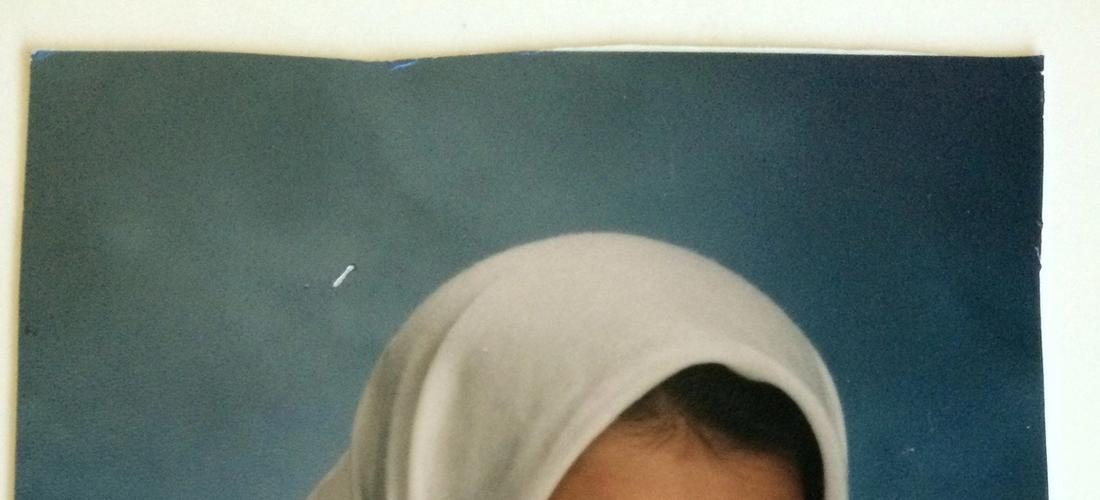
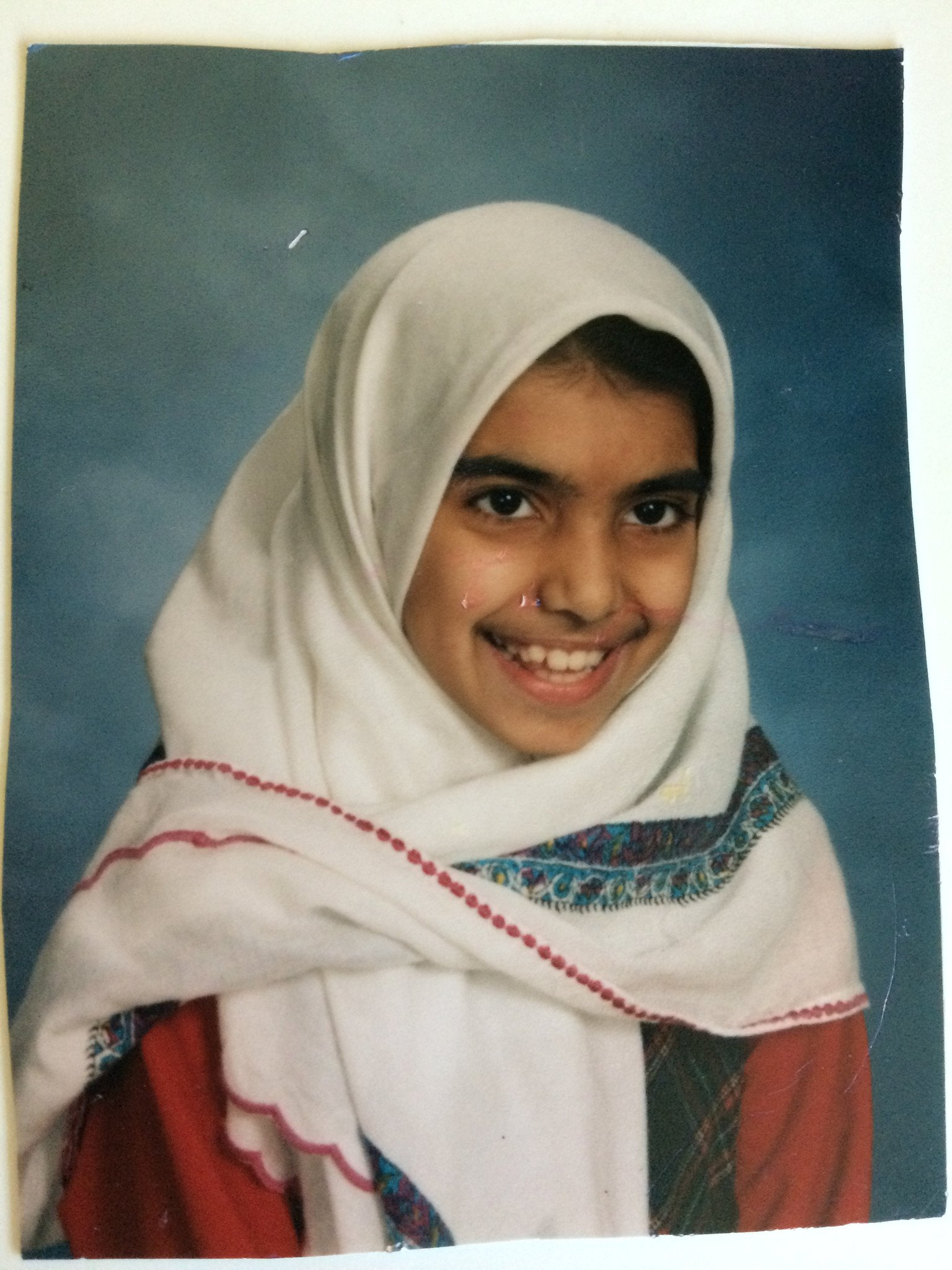
When I started wearing the hijab at 12 years old, it wasn't all rainbows and butterflies. It was in the middle of the school year and my worst fear was that I would never be cool enough to hang out with the “in” crowd because of how different I suddenly looked. It was bad enough being a pre-teen wearing rubber bands on my orthodontia, nerdy wire-rimmed glasses, and having bushmen eyebrows. Add a headscarf to the mix, and I felt like a certified loser. Because I was so sure I'd get ostracized, I didn’t even bother trying to be outgoing or friendly, and I ended up making my own fears come true. Excruciating as this struggle was, it was crucial and necessary in helping me practice my faith with unapologetic tenacity and resolve -- that continues today, nineteen years later.
At first, I wore hijab to make my parents proud.
I was prompted to cover my hair at the encouragement of my mother, who said that she and my dad would be very proud of me if I did. I loved making my parents proud, and this was impetus enough to start. However, the day I walked into my sixth-grade classroom wearing hijab for the first time, my self-image plummeted. I compared myself to the most beautiful and popular girl at school. She had piercing blue eyes and a thick, straight mane of alternating brown and blonde lusciousness. Whenever I saw her in the halls or cafeteria, my heart sank because I knew I could never rise up to such standards of revered Anglo-Saxon beauty. But somewhere inside, I found a will to push forward. Although I didn’t feel particularly pretty or cool in my headscarf, my pride was stronger than my self-pity. I wanted to keep my scarf on because I didn’t want to appear flimsy by turning back on such a monumental decision that was visible to my peers everywhere.
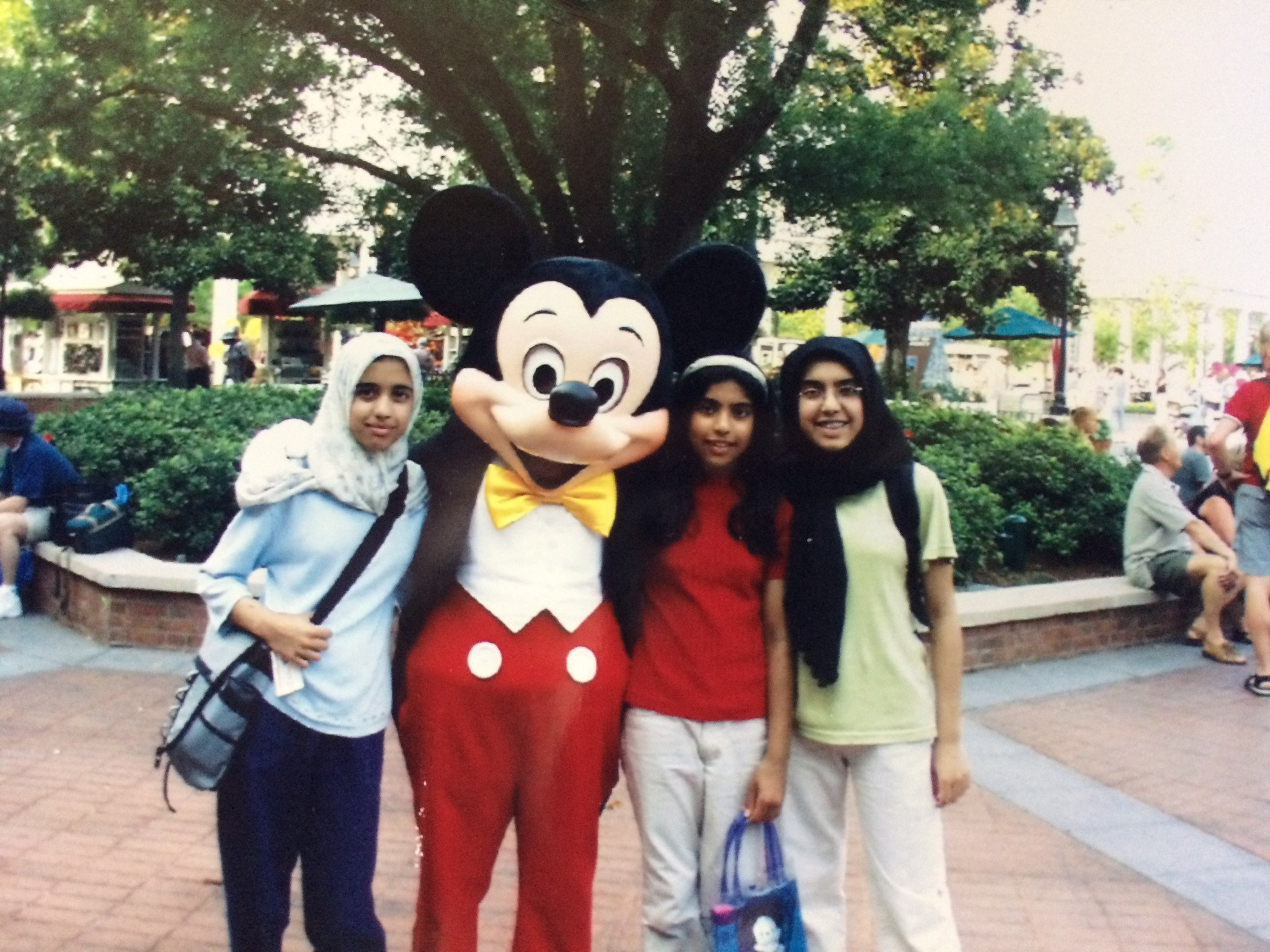
My empathy for middle schoolers runs pretty deep. Amidst all the emotional and physical changes they undergo, their number one priority is fitting in, and it’s intensely painful when that doesn't happen. Compounded with my self-inflicted mantra that I didn’t look pretty or cool wearing the scarf (Haute Hijab hadn’t launched yet, so headscarves and chic didn’t go together in my vocabulary at the time), I had relatives who were also surprised by my decision to start wearing hijab. They’d joke casually, “Take that thing off your head.” Hearing these comments only added to my stress that I resembled more of an elder auntie than a teenager with my head covered. But I kept at it, somehow. I had a great example to follow in my mom; for the past 35+ years she's lived in the United States, she proudly wears shalwar kameez and a dupatta whenever she goes out in public. She has not compromised on this once, and it's what she feels most comfortable wearing. Being around her and others who were so matter-of-fact and no-nonsense about their hijab subconsciously affirmed my decision that wearing a headscarf was the right thing to do, and was doable, even if it wasn’t elegant or perfect on my part.
I knew early on that I wasn’t conforming to standard notions of physical beauty.
Eventually, wearing hijab helped me focus away from my appearance.
Little did I know, wearing the headscarf would actually help build my confidence over time, rather than diminish it. Growing up female in the West, we are taught from a young age what is beautiful, feminine, and attractive. At 12 years old, I was already and unwittingly rebelling against this message. I got used to stares and I learned to filter the sting out of comments like, "Aren’t you hot in that?," "You live in America, you don’t need to wear that!" and, "Wow, you look so different with it off!" (this one from female classmates in bathrooms or locker rooms). I knew early on that I wasn’t conforming to standard notions of physical beauty. As a result, I slowly forged my own path forward and focused my energy on things separate from my outward appearance, such as my studies, volunteering, and writing. My teachers loved me for it, and my parents were immensely proud, even though they never said it verbally. This encouragement made me feel a little better about myself, and it was the fuel that kept me going to be the best version I could be of my young self.
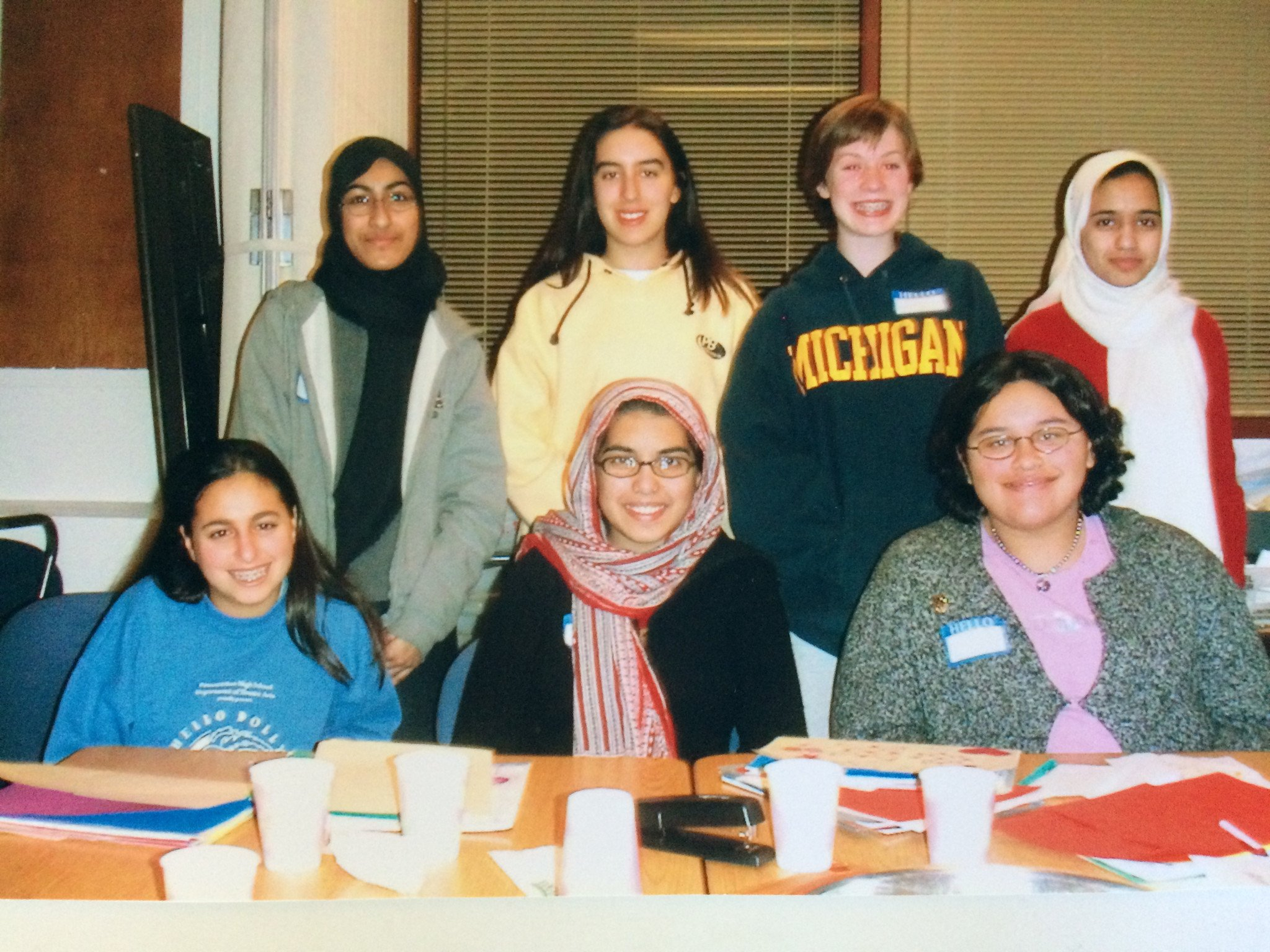
I learned that if I don't care, no one else does.
Things pivoted drastically when I entered 10th grade. At my teacher’s urging, I became a member of Girls For A Change, an organization that empowers teen girls to create social change in their neighborhoods. This new community I joined was comprised of women and girls who came from all walks of life. They were Latina, white, Asian, African American, Christian, Baha’i, gay, transgender, rich, poor, and everything in between. We grew to love and rely on each other without judgment, bonding over our shared vision to make our communities more loving and inclusive. In being asked to bring my talents and voice forward, I realized for the first time that people really didn't care about whether or not I wore a headscarf. The GFC leadership, seeing how passionate I was about their mission, asked me to MC fundraisers and recite poetry before donors at their annual galas. “You’re so articulate for your age,” guests would comment to me afterward. Having South Asian parents, I’d never been praised to my face like that before. It felt good. I believed what they said, and saw myself in a new light. By pointing out what I was good at, rather than commenting on my appearance, I realized that I was so much more than a "hijabi." Furthermore, by being around such positive and empowering energy, I was able to learn how to be compassionate and loving of myself, which, in turn, made me more readily compassionate and loving of others. I wasn’t judging myself by any harsh metric anymore, so I extended this same courtesy to everyone else I came across, as well. This was hugely liberating and opened up an entirely new paradigm shift for me.
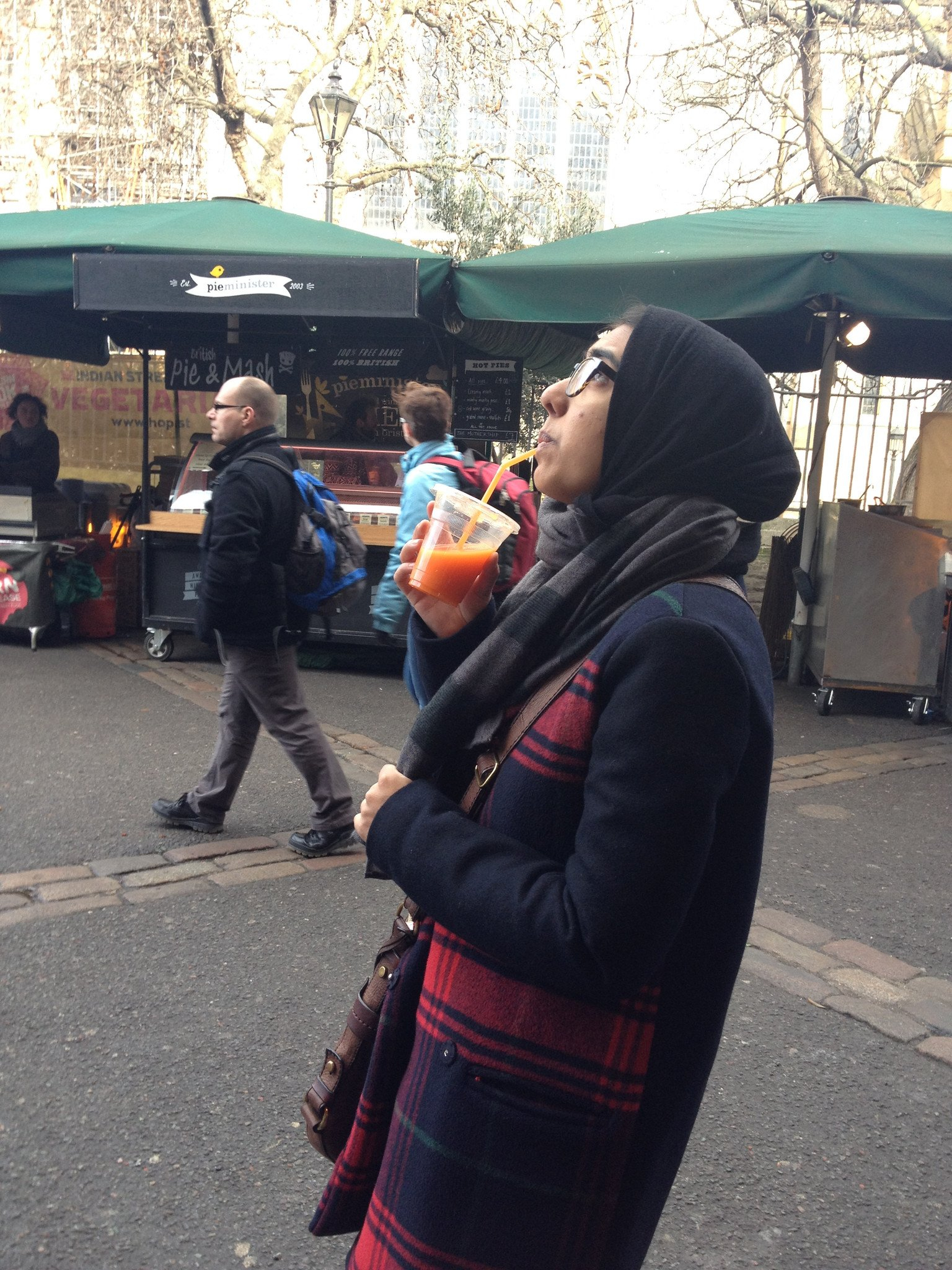
I do it for God, and God only.
As I’ve grown older, my relationship with my hijab has changed. I started wearing it to make my parents proud, but it has since evolved into an act that's far more personal and spiritual. I cringe when I hear that Muslim women are pearls that need to be protected by the hijab, or that we wear it to protect ourselves from the ravenous gaze of men. It's actually far more meaningful and separate from that. Stripped to its core, it's a constant decision to follow my Lord’s commandment upon me, and this is incredibly humbling and gratifying. I find beauty in the struggle to wear it in the face of rising Islamophobia and constant stereotyping, by people both inside and outside of our Muslim community. But, let's not kid ourselves. I'm still human, too. While I couldn’t be more proud to be Muslim, it’s nonetheless exhausting being a flag-bearer for my faith all the time, to have to look approachable or happy so I don't seem oppressed or forced to wear the headscarf by my dad or husband. Nowadays, I tend not to take this burden on, or at least ignore it as best I can. I’ll joke with a cashier if I feel like it, and smile at anyone and everyone in public if I want to. If someone gives me a dirty look on the street or in the airport, I usually stare right back. I know that by expressing other aspects of my personality – as a writer or student or mother or social change agent – I am already breaking barriers and stereotypes.
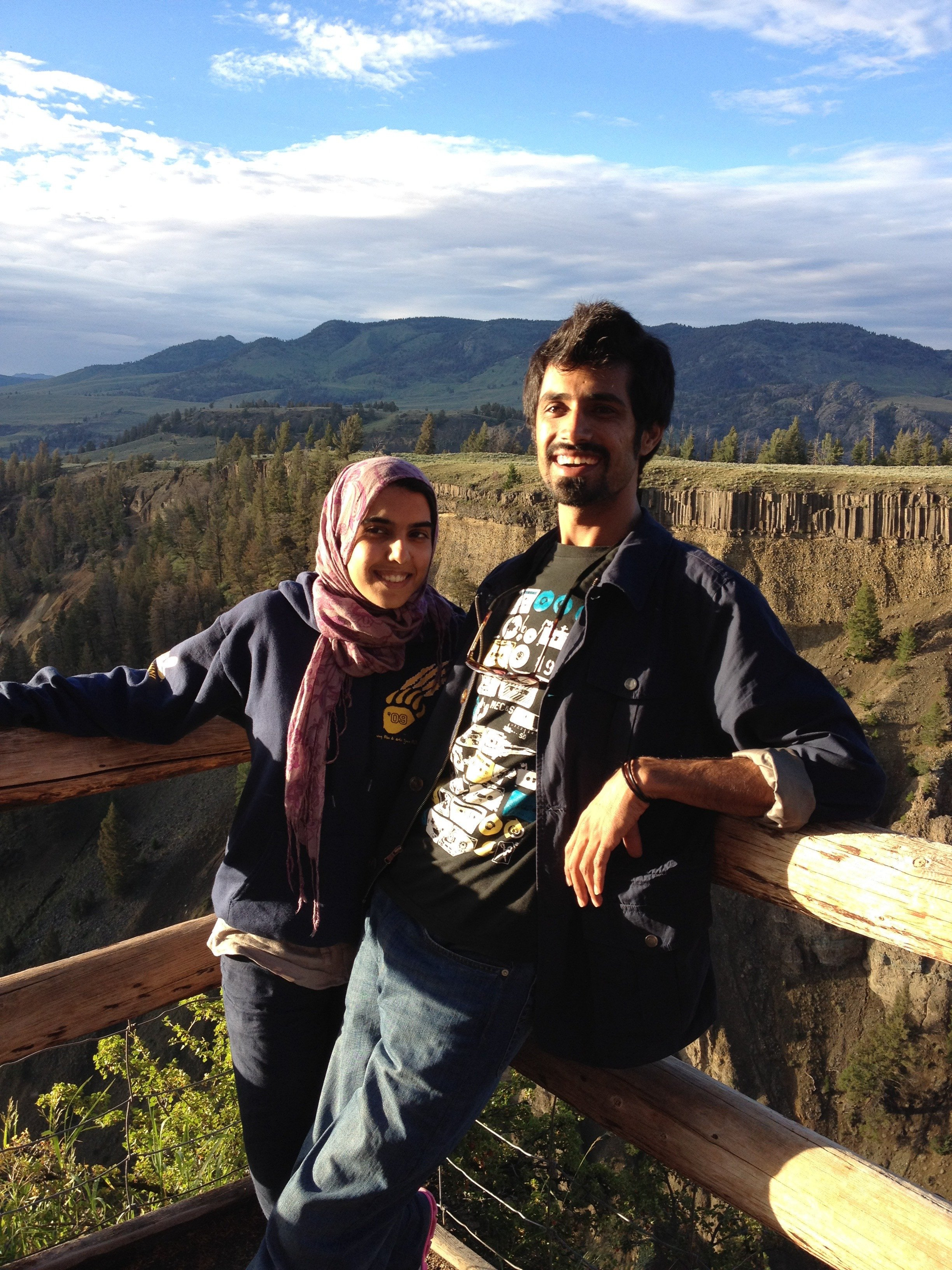
Being this unapologetic about who I am and having agency to be assertive is a huge blessing, and one I don't take lightly. My resolve comes from years of grappling as a youth with intense self-doubt that I was never good enough to fit into mainstream America because of my headscarf. Being around positive mentors and friends who challenged this notion, and falling back on my own stubbornness to keep pushing on, has paid off. I remember hearing Hamza Yusuf say in a lecture last year, “Struggle is a good thing. Sometimes you need people to be a little rude to you. It builds character and teaches you empathy.” I found these words to be so profound and true. Wearing the hijab is not easy. A lot of people challenge our right to wear it and want to see us take it off, so to consistently wear it in the face of all this takes guts and bravery. It’s wonderful to have support, and I appreciate getting it when I do. But I also expect that some people won’t be so nice about it, either. It comes with the package. The windfall from this struggle - for better or worse - is that I've become ardently stubborn in other areas of my life, as well. I’m more likely to stick to my values and ideals about time, food, my health, and relationships. It’s also made me intensely empathetic to anyone asserting his or her ideals in the face of possible backlash or ostracism. I can identify with feeling like you’re the odd one out so I make a conscious effort to be as inclusive and loving of others as I can possibly be.
Can you relate to Alina's experience? Share your hijab story in the comments below!
Save
Save
Subscribe to be the first to know about new product releases, styling ideas and more.
What products are you interested in?

